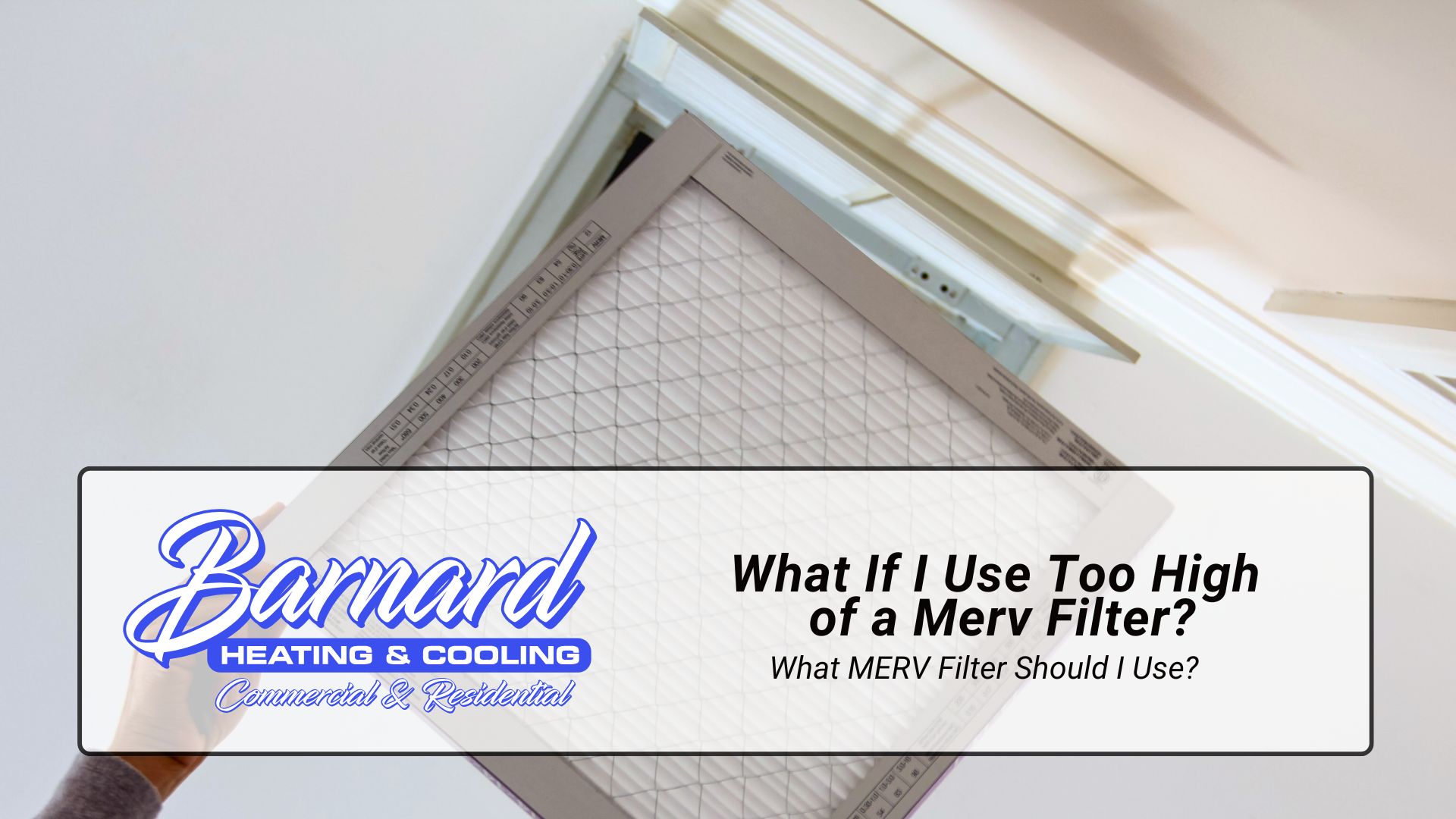When it comes to improving indoor air quality, one of the most common questions we hear is, “What if I use too high of a MERV filter?”
It’s a good question to ask, especially for homeowners and business owners in southwest Missouri who want cleaner air without compromising their HVAC system’s performance. To answer it fully, let’s take a closer look at what MERV ratings mean and what you should consider before choosing a filter.
What Is a MERV Rating on an Air Filter?
First, let’s break down the basics. MERV stands for Minimum Efficiency Reporting Value, which measures how well an air filter captures airborne particles like pollen, dust, mold spores, and even bacteria. MERV ratings range from 1 to 20, with higher numbers indicating better air filtration.
Here’s a quick overview:
- MERV 1–4: Basic filters for larger particles like lint and dust.
- MERV 5–8: Common in homes; captures mold, dust mites, and pet dander.
- MERV 9–12: Better at catching fine particulate matter, including exhaust and smoke.
- MERV 13–16: High-efficiency filters, suitable for hospitals or commercial air handling units.
- MERV 17–20: HEPA filters, used in clean rooms and medical settings, are not made for standard air handling systems.
What MERV Filter Should I Use?
Many homeowners ask, “What MERV filter should I use?” The answer depends on your system and indoor air quality needs. Most residential systems work best with a pleated filter rated between MERV 8 and 11, offering a good balance between filtration and air flow.
If your home has pets, allergies, or asthma concerns, a MERV 12 might be appropriate. For businesses or healthcare spaces, a MERV 13–16 filter may be required, but only if your air handler and ductwork are designed for it.
What If I Use Too High of a MERV Filter?
Installing a filter with a high MERV rating in a system not designed for it can cause serious issues:
- Restricted Air Flow: High MERV filters are denser and more effective at trapping tiny particles, but this density can restrict airflow. If your air handling unit isn’t powerful enough to compensate, it may lead to system inefficiency.
- Overworked Air Handler: When airflow is restricted, your air handler has to work harder to circulate air throughout your home or business. This puts strain on motors and can lead to premature wear and higher energy costs.
- Reduced Indoor Comfort: Blocked airflow can lead to hot and cold spots, increased humidity, and a decrease in overall comfort.
- Damage to Air Handling Systems: Using a filter that’s too restrictive can cause negative pressure in the ductwork or even damage sensitive air handling systems, leading to costly repairs or replacements.
While HEPA filters and high MERV options provide excellent air filtration, they’re not always the right choice for standard HVAC systems. If your system wasn’t designed to handle the resistance of a MERV 16 filter, it could do more harm than good, even if your goal is to remove more particulate matter from the air.
Final Thoughts
If you’re unsure about which MERV filter to use or if you’re considering upgrading your air filtration system, Barnard Heating and Cooling can help. We’ll evaluate your system’s airflow capacity, filter compatibility, and indoor air quality needs to recommend the safest and most effective solution. Contact us today to schedule your service or installation.
